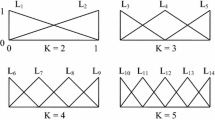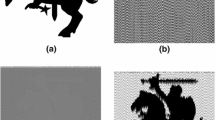Abstract
With applications currently growing in complexity and range, increasing numbers of configuration problems are arising in compilers. Already many software systems offer multiple specialized implementation strategies and substrategies, differing in terms of applicability and/or cost, depending on the application context. Configurations then have to be created from the different strategies available in accordance with the application characteristics, the global optimization objective, and potential constraints on the strategies' combinability. In many cases, this results in a combinatorial, i.e., discrete, optimization problem. Proper solutions for automating the configuration while limiting the complexity of the solution search are still being sought. We address here the field of parallel/distributed processing and the configuration of runtime implementation strategies, such as for communication or dynamic load balancing. We present a rule-based approach, integrating fuzzy methodologies for the classification of application characteristics and for gradual selection preference in rules. In this way we exploit available knowledge about the correlation of the problem and solution space, and apply soft computing methods to obtain an approximate, rather than perfect, solution approach, thus helping to limit the configuration complexity. Our approach extends standard fuzzy inference by a multistage organization, and – with proper organization of rules, characteristics and strategies – performs hierarchical fuzzy inference. The approach is demonstrated on concrete configuration examples in parallel compilers.
Similar content being viewed by others
Author information
Authors and Affiliations
Rights and permissions
About this article
Cite this article
Sodan, A., Torra, V. Fuzzy configuration of matching runtime implementation strategies. Soft Computing 5, 77–92 (2001). https://doi.org/10.1007/s005000000068
Issue Date:
DOI: https://doi.org/10.1007/s005000000068




